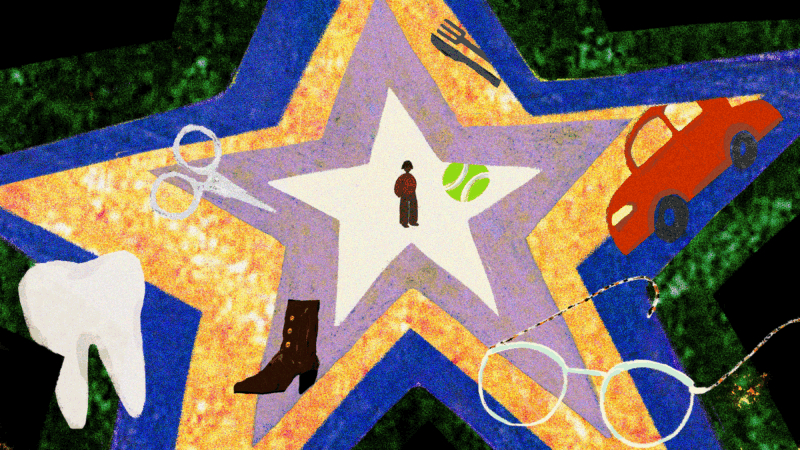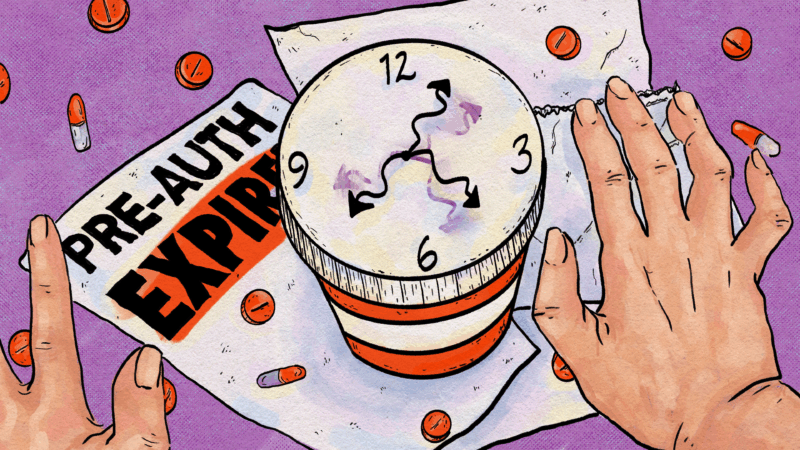Thera-pooch
While we live in a world of advanced medical technology, chances are increasing that a little old time human-to-pet interaction is just what the doctor will order.
In addition to a visit from a doctor, a patient may be visited by a dachshund. Or for the spiritual, after talking to clergy, one might encounter a Saint Bernard. No matter the dog, the sense of companionship and mutual enjoyment are what helps a patient feel like he or she is at home – not in a hospital.
“It’s a sense of normalcy…and a sense of joy,” says UAB Clinical Psychologist Dr. Josh Klapow (CLAY’-poh).
“In a hospital setting there isn’t a whole lot of joy going on…and it’s hard to generate that artificially. And we at UAB do everything we can to make patients comfortable, to provide them visitation, to provide all that. We’ve just noticed with the dogs that it seems to be a powerful addition to the overall experience they’re getting when it comes to health and healing. ”
Dr. Klapow is helping out with the recently begun UAB Canine Ambassador program. He’s seen first hand experience of the joy of which he speaks because his dog is one of the canines dishing – or sniffing — it out.
He gently asks his dog, Boru, “you wanna make noise?” Boru begins sniffing the microphone. Klapow assures he’s not going to eat it.
A short-haired, light brown 200 lb. English Mastiff, Boru stands 3 feet tall on all fours; Dr. Klapow calls his friend “gentle giant.” On visitation day, Boru is just as excited as the patients he’ll seek and lick and drool on.
And despite all the interaction, it’s still a very sterile therapy.
“Humans have more risk bringing in diseases to infect other humans versus dogs. I mean dogs and humans have very little transmittal diseases.”
Tucker Slaughter is director of UAB’s Patient Representative Department. She’s the one who started the program. She says the advantages far outweigh a few inconveniences like the attention Boru commands from staff or his bulky frame wandering the hallways.
When unsuspecting patient Anna-Maria Schmidt meets Boru for the first time, her eyes light up. And so do Boru’s. Mrs. Schmidt sits up in her chair to greet this dog that dwarfs her.
she pets the giant, telling him what a good boy he’s being.
Just the sound of Mrs- Schmidt’s voice indicates to doctors and nurses that she’s feeling better.
“Anytime that you see a beautiful creature like that, you know it kind of gives you a boost. It allows you to get back up and go out.”
Boru is one of many animals and UAB is one of many hospitals, retirement homes and recovery centers that feature animal therapy.
The program at UAB uses dogs, many of them homeless and at shelters, and specially trains them for visitation of a patient who needs a ‘pick-me-up.’ It could be a sick person in a hospital or a troubled youth who benefits from canine or feline friendship.
Beth Franklin is executive director of Hand-in-Paw, who along with other non-profits such as Critter Companions and the Humane Society, provide those specially trained pets to the program.
“They love unconditionally. They’re very accepting, non-judgmental. The tactile stimulation of touching an animal is wonderful for patients. That love that emanates from them. I just feel the energy of love from animals when I’m around them.”
She says it’s a love that can’t come from busy hospital employees.
Next time you’re in the hospital, look down, you might see a bowl of water for that four-legged visitor who drops in and cheers up patients.
It is a pet prescription for getting well.
Feds announce $4.1 billion loan for electric power expansion in Alabama
Federal energy officials said the loan will save customers money as the companies undertake a huge expansion driven by demand from computer data centers.
Mortgage rates fall below 6% for the first time in years
The average home loan rate has dropped below 6% for the first time since 2022. Will that help thaw the frozen housing market?
Pentagon shifts toward maintaining ties to Scouting
Months after NPR reported on the Pentagon's efforts to sever ties with Scouting America, efforts to maintain the partnership have new momentum
Why farmers in California are backing a giant solar farm
Many farmers have had to fallow land as a state law comes into effect limiting their access to water. There's now a push to develop some of that land… into solar farms.
Every business wants your review. What’s with the feedback frenzy?
Customers want to read reviews and businesses need reviews to attract customers. But the constant demand for reviews could be creating a feedback backlash, experts say.
Can’t get a prescription renewed? Here’s how to cope with prior authorizations
These health care hurdles can stand in the way of getting treatment your doctor says you need. Here's what to know about how to deal with them.







